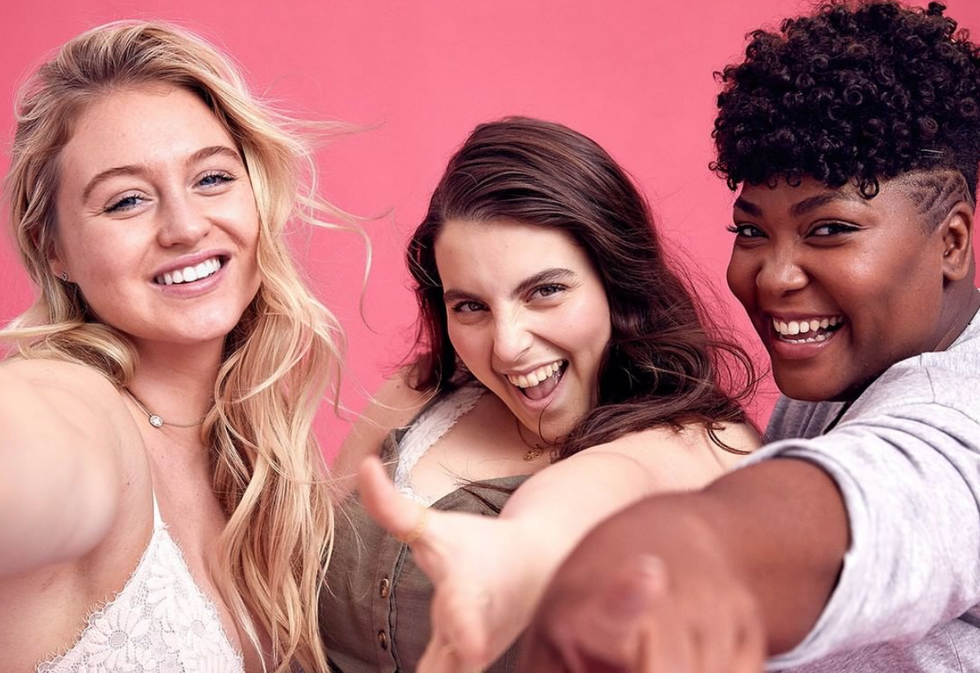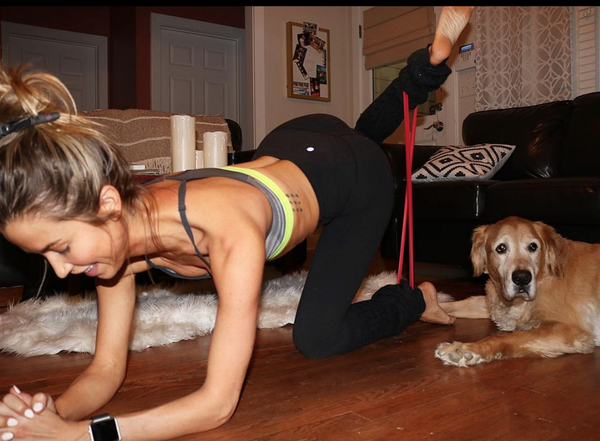I think we can all agree that July 2020 was not supposed to look like this. We were supposed to travel, go on picnics, and jump in community pools with all sorts of germ-spreading strangers, not be in our homes for the 146th day in a row and debate whether or not Christmas was going to happen this year.
This summer is obviously not normal. But what is normal, sadly, is the pressure that many individuals feel when it comes to getting a "summer body" or "bikini body." These terms have been popular since the early '60s, when a weight-loss campaign used it to promote their amazing services. While we now have a better understanding of eating disorders and the negative self-talk that can often lead down a dangerous path, these terms still make many of us shutter and second guess our worth.
Yes, even in a pandemic, men and women around the world are feeling the societal pressure of getting trim, and that pressure started long before we had to turn our air conditioners on. These pressures can impact everyone, no matter what size their bathing suit is.
Diet culture has always told us that we needed to change our appearance to match the latest "body goals." Most of us have grown up in a world where junk food is bad and juice cleanses or the keto diet will solve all of our worries. This isn't to say we haven't made valuable, helpful moves in the opposite direction of these old stigmas — we have a variety of leaders in this body-positive space, including musicians and celebrities who are using their platforms for encouraging change. You can easily find affirmations that help promote positive self-talk, total strangers who are willing to take the time out of their day to tell you how worthy of love and respect you are, and reminders that your weight is merely one aspect of your life. Yet even with new resources for body positivity popping up on a daily basis, it's easier to preach than to practice. Body dysmorphia disorder impacts between 5 and 10 million Americans every year, with many cases going largely unreported.
The coronavirus (COVID-19) pandemic has given everyone's mental health a wide-open door to insecurities — body image being just one of the areas in which individuals may be struggling. With increased isolation and a seemingly unending news cycle of less-than-ideal information, the United States has entered into a mental health crisis. From increases in anxiety and depression, easily-triggered panic attacks, and a general feeling of loss, 2020 has been a rough time for mental wellness.
A group that has felt this crisis greatly is the BIPOC community. Black Americans are watching racial debates play out in front of them while still experiencing poor mental health and increased isolation. Many within this community already find themselves facing unique mental health obstacles due to cultural stigmas — pandemic trauma is only worsening any pre-existing conditions. As social activism within this pandemic continues, it's crucial for individuals to remember to take the necessary steps to best care for themselves so they can continue to make positive change.
As we continue the uphill journey that 2020 has become, it's important to surround ourselves with habits and ideas that give body positivity and mental health a chance. It doesn't take a complicated plan to take care of yourself — sometimes the simplest things, like drinking water, practicing yoga, meditating, getting some sleep, or creating a morning routine can make a huge difference in your day. No matter where you are with your body positivity and mental health, you DO deserve to heal.
If you or someone you know needs help with substance abuse or mental health issues, call 800-662-HELP (4357) for the SAMHSA National Helpline.





















